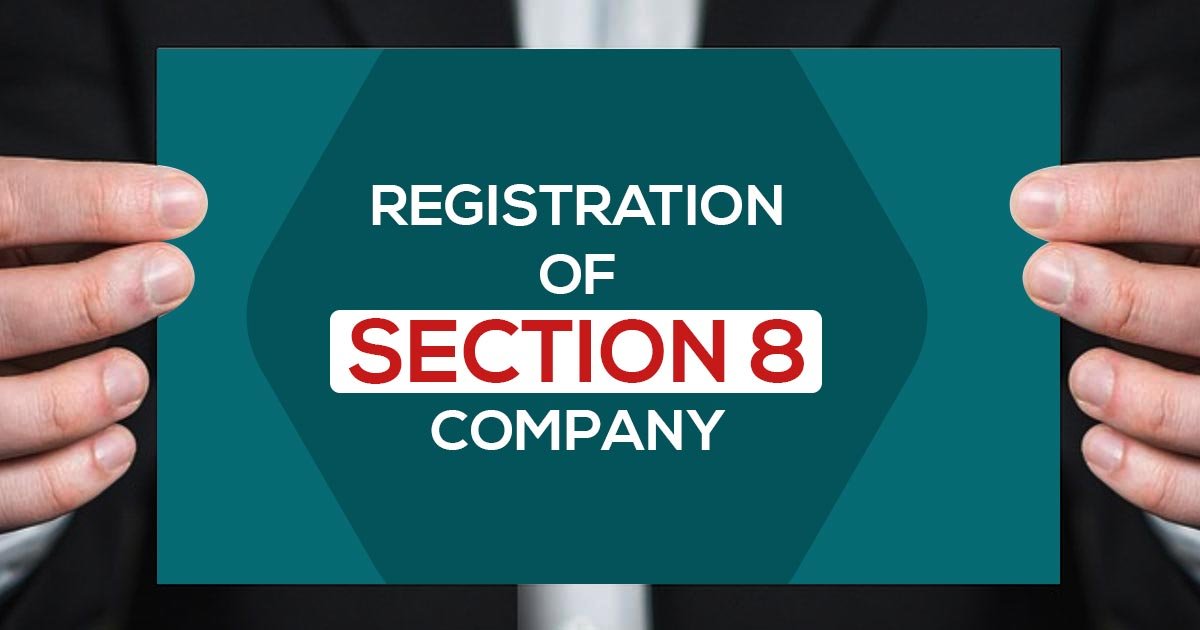A Section 8 Company is a special type of company in India formed for charitable purposes. It is ideal for people or organizations who want to promote social welfare, education, religion, environmental protection, or any other charitable activity. The main difference between a Section 8 Company and other companies is that it cannot distribute its profits among its members. Instead, all profits must be reinvested in promoting the charitable objectives.
In this article, we will cover the registration process of a Section 8 Company, its benefits, and the importance of 12A and 80G registration to ensure tax exemptions. This guide is written in simple language, replacing hard words to make the process easier to understand.
What is a Section 8 Company?
A Section 8 Company is registered under the Companies Act, 2013 in India. It is similar to a trust or society but holds more credibility and recognition because it is regulated by the Ministry of Corporate Affairs (MCA). A Section 8 Company is mainly set up to promote charitable activities without the motive of earning a profit.
The main objectives of forming a Section 8 Company include:
- Promoting education, social welfare, and healthcare.
- Protecting the environment and working for sustainable development.
- Supporting art, culture, and charity.
- Promoting research, sports, or any other beneficial purpose for society.
Documents Required for Section 8 Company Registration
To register a Section 8 Company, you need the following important documents:
- PAN Cards of all Directors: Personal PAN cards of each director involved in the company.
- Aadhaar Card or Identity Proof: The identity proof of all directors (like Aadhaar card, driving license, or passport).
- Address Proof of Directors: Recent utility bills or rent agreements to verify the address of all directors.
- Passport-size Photos: Photos of all the directors.
- Proof of Registered Office Address: Utility bills or rent agreements of the office address.
- Memorandum of Association (MOA) and Articles of Association (AOA): These documents define the objectives and the rules governing the Section 8 Company.
- Director Identification Number (DIN) and Digital Signature Certificate (DSC): These are required for online submissions and approvals.
Once these documents are ready, you can apply for Section 8 Company registration with the Ministry of Corporate Affairs.
Process of Registering a Section 8 Company
The registration process for a Section 8 Company is quite straightforward. Follow these simple steps:
- Obtain a Digital Signature Certificate (DSC): The first step is to obtain the DSC for all directors of the company. This is used for signing the online application forms.
- Director Identification Number (DIN): Apply for the DIN for all directors. This is a unique number required for every individual who wants to become a director of a company.
- Name Approval: Submit the proposed names of your Section 8 Company to the MCA for approval. Make sure the name reflects the charitable purpose of the company.
- Submission of MOA and AOA: Submit the Memorandum of Association (MOA) and Articles of Association (AOA) to the Registrar of Companies (RoC). These documents outline the objectives and rules governing the company.
- Application for License: After the approval of the name, you need to apply for a license under Section 8 of the Companies Act, 2013. This license confirms that your company is established for charitable purposes.
- Certificate of Incorporation: After all documents and forms are verified, the Registrar of Companies issues the Certificate of Incorporation, which officially registers your Section 8 Company.
Benefits of Section 8 Company
There are several benefits of registering a Section 8 Company in India:
- Tax Exemptions under 12A and 80G: One of the major benefits is tax exemptions. Once your Section 8 Company is registered, you can apply for 12A and 80G registration, which provides tax benefits to both the organization and donors. Under 12A registration, your company will be exempt from paying income tax on the profits, while under 80G registration, donors can claim a tax deduction on their donations to your company.
- Credibility and Recognition: A Section 8 Company holds more credibility compared to a trust or society, as it is registered under the Companies Act and regulated by the MCA. This makes it more trusted by donors, corporate partners, and the public.
- Limited Liability: The liability of members of a Section 8 Company is limited to the amount they have invested or guaranteed.
- Separate Legal Entity: A Section 8 Company is considered a separate legal entity from its members. This means the company can own property, enter into contracts, and take legal action in its own name.
- No Minimum Share Capital: Unlike private companies, there is no minimum capital requirement for starting a Section 8 Company.
- Perpetual Existence: The company continues to exist regardless of the change in membership or the death of members.
12A and 80G Registration for Section 8 Company
Once your Section 8 Company is registered, it’s important to apply for 12A and 80G registration to enjoy tax benefits. Here’s a brief on both:
- 12A Registration: This allows the company to be exempt from paying income tax on the surplus income used for charitable purposes. Without 12A registration, the income of the NGO is taxed like any other business income.
- 80G Registration: This allows donors to claim tax deductions on the amount they donate to your company. Donors can get up to 50% deduction on their donations, encouraging more contributions towards your charitable activities.
Both 12A and 80G registration are crucial for the financial well-being of the company and for attracting more donors who benefit from tax deductions.
Documents Required for 12A and 80G Registration
- PAN Card of the Section 8 Company.
- Certificate of Incorporation.
- MOA and AOA.
- List of governing body members.
- Financial statements.
- Detailed activity report of the company.
Conclusion
A Section 8 Company is an excellent choice for anyone looking to create a not-for-profit organization with clear objectives of benefiting society. It provides several advantages like tax exemptions, credibility, and a well-structured legal framework. Obtaining 12A and 80G registration further enhances the financial efficiency of the company by allowing tax benefits to both the company and its donors.
By following the registration steps and preparing the necessary documents, you can set up a Section 8 Company in India without much hassle. If your goal is to contribute to a charitable cause, registering a Section 8 Company and ensuring 12A and 80G registration will set you on the right path to making a significant impact.
Also read : Mentales Alter Test: Was Ihr mentales Alter über Sie verrät












